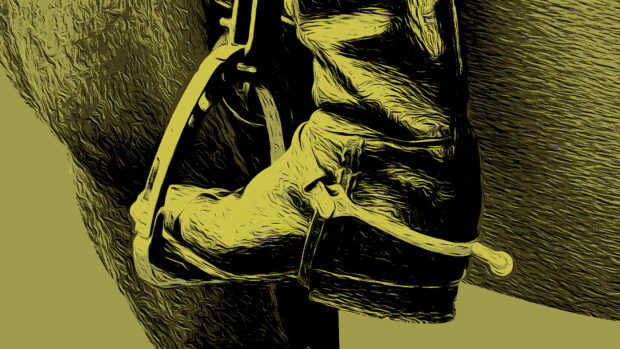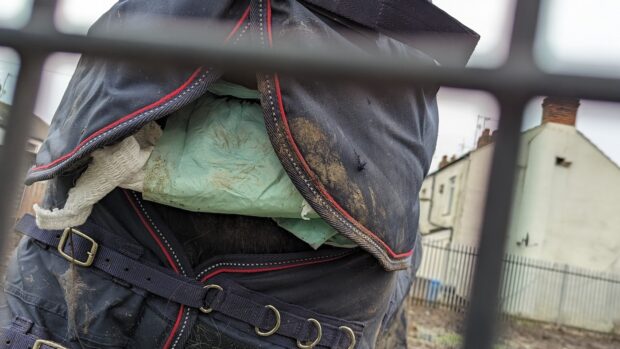Many domestic horses’ needs for space, forage and socialisation are not being med, a survey has shown – as it provides opportunity to improve equine wellbeing.
The National Equine Welfare Council (NEWC) has announced the publication of a “groundbreaking” two-part study that “delivers a comprehensive review of factors influencing the wellbeing of domestic horses”.
The research, published in the Universities Federation for Animal Welfare (UFAW) journal Animal Welfare, “identifies essential needs and the profound impact of human interactions on horse welfare, offering practical recommendations for improving horses’ quality of life”.
Researchers Carol Hall and Rachel Kay conducted a review of scientific research, looking mainly at species-specific needs and horse-human interactions.
The first paper references the need to show that the horse world is actively working to improve equine quality of life or risk losing public acceptance of riding, and states that we must be able to demonstrate evidence-based assessment of wellbeing. Having reviewed available research, the team found that horses have to be able to fulfil their species-specific needs to have a good life.
“Current approaches to horse management frequently fail in this respect and consequently, their quality of life is suboptimal,” the paper concludes, adding that equine behaviour that indicates a negative state, “often resulting from inadequate social and physical environments, in addition to insufficient forage provision”, are evident.
“Although the lack of such behavioural expression may be considered by many in the equine sector as evidence that the horse has an acceptable quality of life , the findings of this review suggest otherwise.
“The first stage in moving towards a better life for horses is undoubtedly to provide them with the opportunity to satisfy their behavioural needs from birth onwards and improve their potential for experiencing pleasure.”
The team said the findings show what horses need for a good life, and how behaviour reflects quality of life.
Dr Hall said: “Unfortunately, most domestic horses aren’t living as good a life as they could or should be. Our review highlights several areas where current management and training practices fall short. Ensuring basic provisions like space, companionship and adequate forage is essential for their wellbeing, yet these needs are often unmet.
“It was also clear from the literature that behavioural signs, which could indicate how horses feel during human interactions, are often ignored or misinterpreted. Restrictive practices limit their ability to withdraw from unpleasant situations, leading to long-term negative effects.”
The second paper considered the horse-human relationship, noting that human interactions can positively and negatively affect horses’ wellbeing.
It concluded that quality of life is determined by the balance between positive and negative experiences, and that horses’ behaviour can indicate which is which, but these “are confounded by human control and training, and are open to misinterpretation”.
“Many interactions with humans have the potential to be unpleasant for the horse and the equine sector now needs to consider what changes should be made to management and training procedures to make them less aversive and more pleasurable,” the paper states.
“A good life for horses is only possible if their species-specific needs are met and their lifetime experiences of interactions with humans are predominantly positive. The quality of life of the domestic horse can only improve if stakeholders from across the equine sector acknowledge the need for change and implement the findings of this review.”
The researchers’ key recommendations to improve equine welfare are: to prioritise providing horses with space, companionship and free access to forage, to minimise negative human-horse interactions by improving handling techniques and training methods, and to recognise and address behavioural signs of pain early.
NEWC chair Carolyn Madgwick said: “On a positive note, this extensive review allows us to pinpoint numerous ways to improve the lives of domestic horses. The NEWC code of practice is currently being updated and will incorporate these findings to advance equine welfare nationwide.”
- To stay up to date with all the breaking news throughout major shows such as London International and more, subscribe to the Horse & Hound website
You may also be interested in:

‘Seeing horses for what they are’ and giving them choices – to give them a better life

Mutual respect and good equine citizens: giving horses the best start in life

‘Be aspirational’, don’t throw mud and listen to what horses are telling us, say experts

What is a good life for a horse? We have to listen to – and act on – what they tell us

Subscribe to Horse & Hound magazine today – and enjoy unlimited website access all year round





